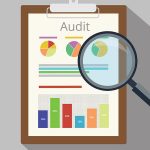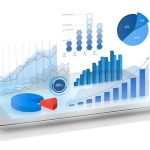Last week I had the pleasure of working with the University of South Wales (USW) to help non-technical people understand Data Science. More specifically, I was running a Masterclass entitled Everyday Data Science . The brief was to demystify this topic for a diverse audience. It was clearly popular as it drew a good crowd. The delegates who attended my Masterclass varied from … [Read more...] about How to Help a Non-Technical Audience Understand their Readiness for Data Science
Big Data
Learn everything you need to know about big data. Find out how companies are using this revolutionary technology and what it means for your business strategy.
The Top 10 Metadata Management Platforms for Efficient Data Administration
Metadata management, lately, has emerged as one of the most important practices in organizations. The underlying reason being the increased usage of big data and cloud platforms, and the tendency of information to get scattered in the absence of efficient metadata management. This has necessitated the need for organizations to adopt the best in metadata management practices in … [Read more...] about The Top 10 Metadata Management Platforms for Efficient Data Administration
How to Monetize the Sports Digital Transformation
The sports digital transformation is upon us, and the world of sports is about to be disrupted through the technology at play. In the words of the most decorated Olympian to step on the podium: You can't put a limit on anything. The more you dream, the farther you get. -Michael Phelps The field of sports has advanced by leaps and bounds over the last decade. By looking at … [Read more...] about How to Monetize the Sports Digital Transformation
Data Quality: Making Change a Choice
In the modern world, nothing stays the same for long. We live in a state of constant change; new technologies, new trends and new risks. Yet it's a commonly held belief that people don't like change. Which led me to wonder, why do we persist in calling change management initiatives change management if people don't like change. In my experience, I have not found this maxim to … [Read more...] about Data Quality: Making Change a Choice
Best Libraries and Platforms for Data Visualization
In one of our previous posts, we discussed data visualization and the techniques used both in regular projects and in Big Data analysis. However, knowing the plot does not let you go beyond a theoretical understanding of what toll to apply for certain data. With the abundance of techniques, the data visualization world can overwhelm the newcomer. Here we have collected some … [Read more...] about Best Libraries and Platforms for Data Visualization
What is big data?
Big data is a term that refers to the massive amount of digital data created and shared every day. Big data can transform how we live, work, and communicate. It can be used to improve everything from public health and urban planning to business and marketing.
Big data is also changing the way we think about privacy and security. The volume, velocity, and variety of big data present challenges and opportunities for organizations and individuals. Regardless, big data is here to stay, and its impact will only continue to grow in the years to come.
What is big data analytics?
Big data analytics is the process of turning large, complex data sets into actionable insights. Businesses use various analytical tools and techniques, including machine learning and statistical analysis, to do this.
Big data analytics can be used to improve decision-making in areas like marketing, operations, and customer service. It can also be used to identify new business opportunities and optimize existing processes. With the help of big data analysis, businesses can gain a competitive edge by using their data better.
Want to learn more about big data? Datafloq has courses available. Contact us to get started.
When was big data introduced?
The term big data was coined in the 1990s, with some giving credit to John Mashey for popularizing the term. However, the concept of big data has been around for much longer.
Where does big data come from?
In the early days of computing, scientists and businesses began to realize that the amount of data being generated was increasing exponentially. As a result, they began to develop new methods for storing and processing data.
Over time, these methods have become increasingly sophisticated and have played a key role in enabling businesses to make sense of vast amounts of information. Today, big data is used in various industries, from retail to healthcare, and its importance is only likely to grow in the years to come.
What are examples of big data?
One of the most common examples of big data is social media data. With over 2 billion active users, Facebook generates a huge amount of data every day. This includes information on user interactions, posts, and even location data. Analyzing this data can help companies better understand their customers and target their marketing efforts.
Another example of big data is GPS signals. These signals are constantly being generated by devices like cell phones and fitness trackers. When combined with other data sets, GPS signals can be used to provide insights into everything from traffic patterns to human behavior. Finally, weather patterns are another type of big data set. By tracking these patterns over time, scientists can better understand the impact of climate change and develop strategies for mitigating its effects.
How do companies use big data?
Companies use big data in marketing, product development, and customer service. By analyzing large data sets, businesses can identify patterns and trends that would be otherwise difficult to spot. For example, a company might use big data to track customer behavior patterns to improve its marketing efforts.
Alternatively, a company might use big data to improve its products by identifying areas where customers are most likely to experience problems. For instance, big data can be used to improve customer service by finding pain points in the customer journey. Ultimately, big data provides companies with a valuable tool for gaining insights into their business operations.






